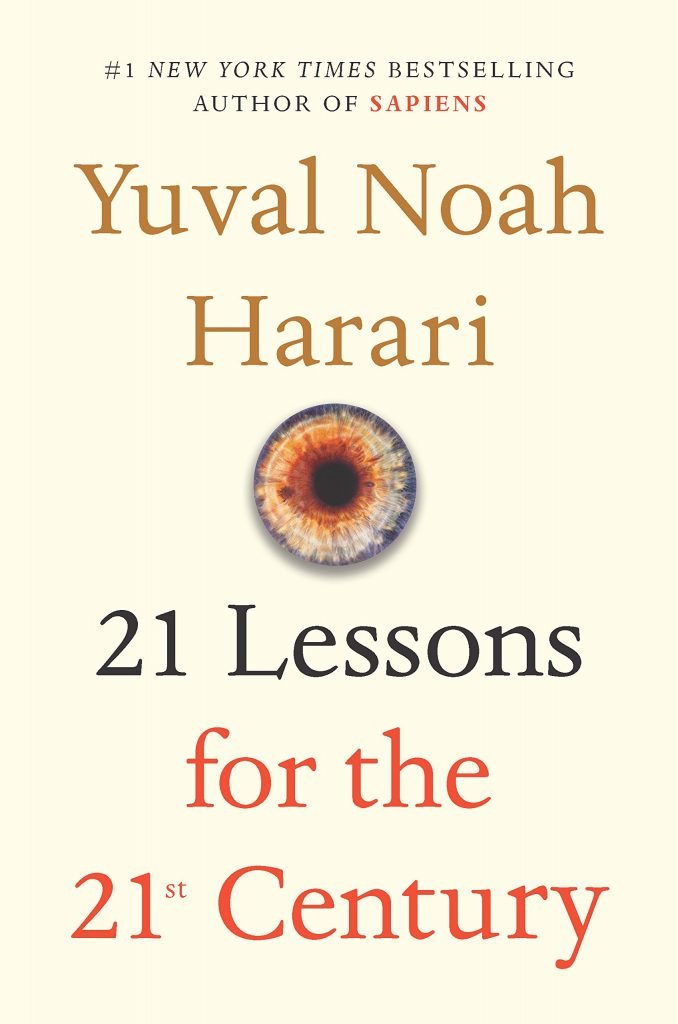One of the best nonfiction books you can read will make you examine the flaws and issues in our modern society and show you how to fix them. If you’re pressed for time, free book summaries and free audiobook summaries are both accessible.
Despite its gloss and glamour, the twenty-first century has its fair share of difficulties. Technology, globalisation, fake news, political and social difficulties, and terrorism are just a few of the problems we face today. This book by Yuval Noah Harari offers us hard evidence of the terrifying issues of this century as well as strategies to ensure our future is secure.
The world of Artificial Intelligence
Most people, including political parties and leaders, have been left behind by computers and their growth. Except for highly skilled specialists, the technical environment has grown so complex that the average person finds it difficult to understand the codes and strings. Unfortunately, it also applies to political leaders who have been pushed out of the algorithmic realm.
The author often complains that this technological upheaval is not being given enough attention. The employment of humans will soon be replaced by machines and computers, which is not only plausible but also imminent. And the average person has realised that, which has brought to political changes like Brexit.
Neuroscience advancements
It is evident that we are in danger even though the breakthroughs in neuroscience are noteworthy and have a good effect on society. Modern neuroscience has uncovered many of the brain’s mysteries, including its cognitive functions. Machines that were once just slightly more advanced than humans in terms of physical prowess but fell short of us in terms of cognitive capacity may now be on the verge of doing so.
Matters regarding immigration
Political discussions over immigration have taken place everywhere in the world. More and more people are moving to industrialised countries because they provide better employment prospects as a result of globalisation. However, this has led to conflict between the natives and the immigrants.
The author repeatedly brings up the issue in Europe in 21 Lessons for the 21st Century. Fascist anti-immigrant and pro-immigrant organisations have risen in prominence in recent years. Anti-immigrant activists have advocated for strict regulations to make sure that all newcomers adopt their culture as their own. While those who support immigration think it is foolish to assimilate to a broad identity that most Europeans do not identify with. And it’s starting to get really bad.
Terrorist organizations
There is no denying the influence terrorists have over our psyche. They may not be able to significantly destroy a country’s army, infrastructure, or economy as a whole, but they have manipulated governments like a violin with well-planned attacks on the most defenceless parts of a nation. For these organisations, everything revolves around spreading unease and worry in the public’s minds and compelling the government to alleviate these anxieties.
The 9/11 attack by al-Qaeda on the US Twin Towers is used as an example in the book 21 Lessons for the 21st Century. The nation’s psyche took a severe beating as a result, which motivated the government to take action against these militant organisations. As a result, they declared war on these organisations in Afghanistan, and the Middle East descended into instability. These ramifications are still there today. The author’s main point was that when governments overreact, terrorists win.
Ignorance in the individual level
Nearly all millennials experience this disorder, which they are unaware of. Our pleasant lives are the result of the numerous advances made in our century. However, the majority of people live in a state of knowledge illusion because this knowledge has only been acquired by a relatively small portion of the population. When we see a car or even a watch, we instinctively assume we know everything about them even when we only have a basic understanding of how to operate them.
In other words, while we have a lot of knowledge collectively, we have very little knowledge personally. Perhaps even more so than individuals living in the Stone Age, when everyone possessed equal talent. Given that our societies are built on the premise that everyone is a responsible, intelligent person, this is a perilous position.
Analytical thinking in children
Children are taught previously acquired knowledge and information in today’s classrooms with the goal of preparing them for the modern world. They overlook the fact that information is available everywhere, though. Many pieces of content can be found with just one search. Equal amounts of false information and unfounded facts exist, though. Children today who will become adults tomorrow fall into a well-designed net of disinformation because they are only taught to receive knowledge.
The author contends that it is crucial to instil analytical thinking in children. They should be instructed in how to disentangle rumours from facts and assess both in order to halt the spread of false information.
So, among the numerous lessons this book will teach us, these are only a few. As we are compelled to concentrate on urgent concerns that were never before anyone’s priority, it is eye-opening.
